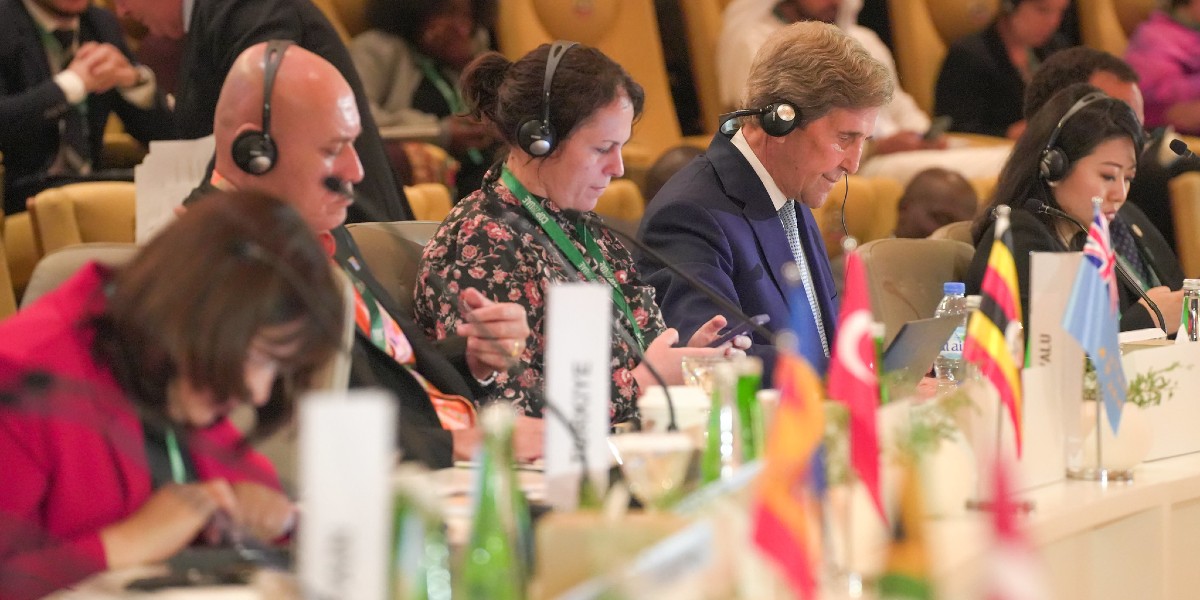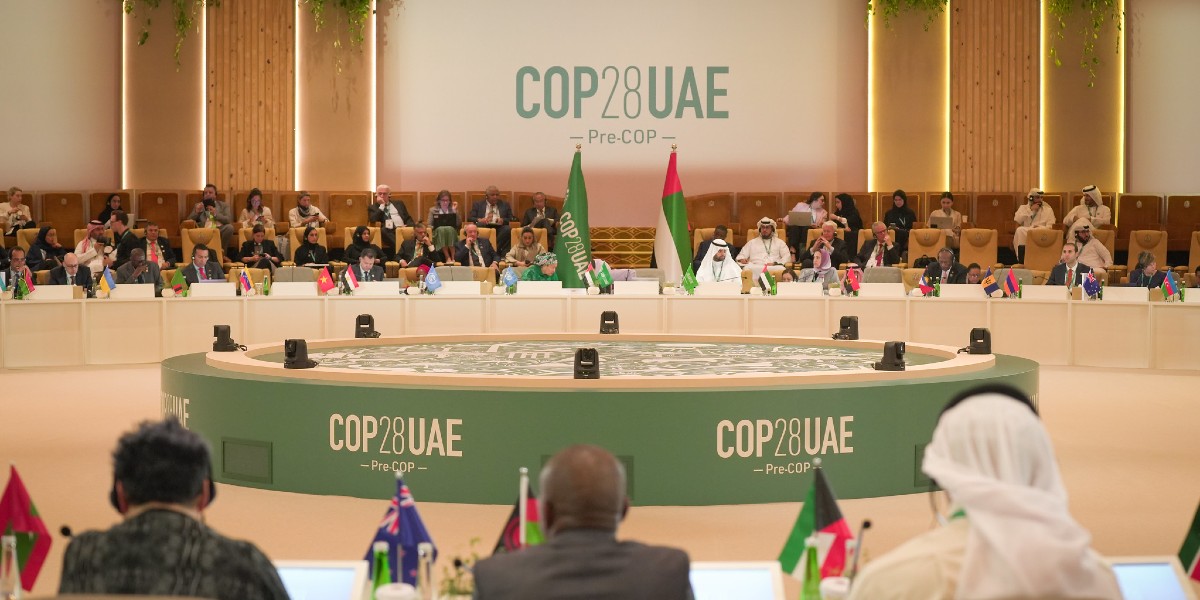As we anticipate the 28th United Nations Climate Change Conference of the Parties (COP), Jack August McEachern, a MSc International Political Economy (Research) student at LSE, offers their opinion of the political challenges facing meaningful international cooperation.

Major nations across the globe recently took noteworthy actions on climate. The United States passed the Inflation Reduction Act, the European Union introduced carbon tariffs, and China deepened its commitment to state-based environmental goals. These differing climate initiatives share an inclination toward economic protection at a time in which coordination on climate change is crucial.
Trends in Global Economy
Signed in 2022 by President Joe Biden, the Inflation Reduction Act is a goodie bag of subsidies and tax incentives intended to cut costs of green goods and services, stimulate their demand, and accelerate economy-wide decarbonisation.
The $369 billion federal stimulus injects funds into the economy after years of market concentration. Today, dominant monopolies wield enhanced influence over policy decisions in key climate sectors. As the nation increasingly adopts protectionist policies, domestic monopolies see a proportional rise, enabling them to seize ever-growing swaths of the markets. It creates a compounding cycle, where market concentration reinforces trade-distortive policies, which in turn further amplifies market concentration.
The effect is global in nature. Subsidies in the United States cut production costs, bring down commodity prices, and enable the US industry to squarely beat out global competitors. In pursuit of its climate goals, the US government has invigorated monopoly power and interlocked the interests of climate with the interests of industry.
In pursuit of its climate goals, the US government has invigorated monopoly power and interlocked the interests of climate with the interests of industry.
The US is not alone; the European Union has enacted its own climate legislation with a distinct protectionist tone. In September 2023, the EU introduced trade-distortive measures by imposing carbon tariffs on vital commodities such as steel and cement. The tariff specifically aims to penalise importers from nations that lack sufficient climate standards.
Soon after, China, the world’s largest steel and cement producer, accused the EU of destabilising the global trade market. And for justifiable reasons. These levies threaten to undo Chinese markets already suffering from an excess supply, which it mitigates through sales in the export market. As Europe closes its doors to Chinese imports, China will have to rely heavily on its Belt and Road Initiative and other global export markets.
The leveraging of monopoly power ripples across the globe and increasingly disregards international institutions and norms. The Inflation Reduction Act explicitly discriminates against foreign goods – violating WTO rules, the European Union sees little redress in its courts, and China must rely on continual bilateral arrangements to keep its economy growing. A new phase of the international economy is underway, where zero-sum terms define action on climate. Protecting major industries and their interests sits at the centre of the conversation.
And the global south?
The hostile global environment presents significant hurdles for developing economies and threatens to exacerbate long-term global emissions.
Production in critical sectors like steel and cement are high in emissions and key to global south development. Green technology is capital-intensive in these industries; broadly, financing such projects remains challenging. It is simply more expensive to finance green projects in the global south than in the global north. Stiff international competition provides little wiggle room to raise funds for investment, and high tariffs and low commodity prices abroad mean developing economies stand little chance to compete. Significant financial constraints persist, preventing the deployment of sustainable technology in developing nations.
Proper climate coordination would consider carbon emissions in all global production, and would encourage broad investment and deployment of green projects in developing nations.
Moreover, developing countries require trillions of dollars of funding to meet their climate mitigation goals. International financial agreements offer only a fraction of that. Monopolisation and protectionist policies further stymie progress on the issue, as states and their industries increasingly recoil from developing potential competitors.
From this perspective, the recent legislative action in the global north is short-sighted. The global south already contributes a significant portion to global emissions, and those numbers are expected to rise. Proper climate coordination would consider carbon emissions in all global production, and would encourage broad investment and deployment of green projects in developing nations.
The logical conclusion of monopoly vs monopoly competition demarcated by national lines and impulses is an international system incapable of speedy climate action.
Looking Forward
The logical conclusion of monopoly vs monopoly competition demarcated by national lines and impulses is an international system incapable of speedy climate action.
The state has invested its interest in firm profit margins, thus becoming a global vehicle to protect national industry. Actors interested in addressing climate change are left with a shrinking international arena to challenge governing bodies.
The changing landscape only further cements private environmental governance at the international scale. As states empower monopoly operations, they transfer governing power from public to private. Industry standards, ESG, and stakeholder pledges will be increasingly critical in driving global environmentalism. How these structures will address climate at a global scale remains unclear.
From an international perspective, increasing monopolisation and protectionism within domestic economies spell disaster for the world’s climate. They produce zero-sum conditions where coordinated action on carbon emissions is a distant reality.
The proper solution to our crisis is international coordination on climate with de-monopolisation, broad technology deployment, and a significant transfer of capital from the global north to the global south. This solution seems increasingly implausible in our contemporary global economy.
From an international perspective, increasing monopolisation and protectionism within domestic economies spell disaster for the world’s climate.
Banner photo from COP28 Pre-COP: Plenary, Global Stocktake official Flickr CC by-NC 2.0
This article represents the views of the author, and not the position of the Department of International Relations, nor of the London School of Economics.





